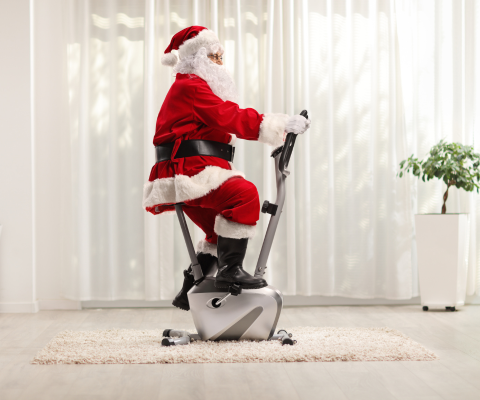 The Christmas season is a time for celebration, family gatherings, and delicious meals. During this holiday period, finding the time and energy to workout can be tough due to the festive indulgences. It’s essential to find a balance between enjoying the festivities and caring for your joints.
The Christmas season is a time for celebration, family gatherings, and delicious meals. During this holiday period, finding the time and energy to workout can be tough due to the festive indulgences. It’s essential to find a balance between enjoying the festivities and caring for your joints.
In this article, we’ll explore some tips to help you stay active and exercise with arthritis during the Christmas period.
1. Embrace Low-Impact Activities
Choose for low-impact exercises that are gentle on your joints. Activities like swimming, water aerobics, or walking in a heated pool can provide both exercise and pain relief. These activities offer a great way to stay active without putting excessive strain on your joints, as well as managing your arthritis symptoms and reducing pain.
For more information, read our article on The Benefits of Water Exercise for Arthritis.
2. Warm-Up and Stretch
Before engaging in any physical activity, ensure you warm up properly. Gentle stretching can improve joint flexibility and reduce the risk of injury. Focus on areas that are commonly affected by arthritis, such as your knees, hips, and hands.
3. Create a Routine
Maintaining a regular exercise routine can help you stay active when you are busy during the Christmas period. Schedule your exercise sessions at a consistent time each day to form a healthy habit. Consistency and sticking to a routine is key to start seeing the long-term benefits of exercise.
For more information, read our article on Healthy Habits.
4. Mindful Walking
Taking a walk is a simple yet effective way to stay active. If you’re participating in holiday shopping or attending festive events, consider parking your car a bit farther away or taking short walks during breaks. This can add up to your daily physical activity.
For more information, read our article on Walking and Arthritis.
5. Include Strength Training
Strength training can help support your joints and improve your overall stability. Focus on light weights or resistance bands to strengthen the muscles surrounding your arthritic joints. Consult an exercise physiologist, or fitness professional to create a safe and effective strength training program.
For more information, read our article on The Benefits of Strength Training.
6. Listen to Your Body
It’s important to be in tune with your body and its limits. If you experience pain during or after exercise, it’s a sign to modify your routine or rest. Avoid overexertion and understand that some days you may need to do gentler activities.
For more information, read our article on The Power of Pacing for Arthritis Management.
7. Engage in Chair Exercises
Chair exercises are ideal for people with arthritis. You can perform seated leg lifts, gentle twists, and arm exercises while sitting. These exercises can be completed while watching TV or chatting with loved ones.
8. Socialise Actively
Invite family and friends to join you in activities that encourage movement. Whether it’s going for a group walk along the beach or at the park, a game of cricket, or dancing with the little ones on Christmas or New Year’s Eve, being active can be fun and social.
For more information, read our article on Exercising with Arthritis.
9. Stay Hydrated
Water is important to maintain cartilage in your bones and reduce joint inflammation. Water also helps create synovial fluid, a thin layer of fluid that cushions and delivers nutrition to your joints. Synovial fluid reduces friction when you move your joints. Less synovial fluid can result in increased friction which can cause joint pain, inflammation and stiffness.
10. Modify Your Activities
If your arthritis flares up or you experience pain and discomfort, don’t be afraid to modify your activities. Reducing the duration or intensity of your exercise can still provide benefits without causing pain.
For more information, read our article on Protecting Your Joints.
11. Consult a Professional
If you’re unsure about which exercises are safe and effective for you and your arthritis, consider speaking with an exercise physiologist or healthcare professional. They can tailor a program to your specific needs and goals.
For more information, read our article on How an Exercise Physiologist Can Help You.
The Christmas period is a wonderful time with family and friends, and you don’t have to let arthritis hold you back from enjoying the festivities.
Staying active and exercising with arthritis during Christmas is entirely possible with the right approach.
By choosing low-impact activities, creating a routine, listening to your body, and seeking professional guidance when needed, you can maintain your mobility and reduce pain while celebrating the holiday period.
Remember that the key to success is a balance between enjoyment and self-care.
Breanna Jones
Health Promotions Coordinator
Arthritis QLD
November 2023
